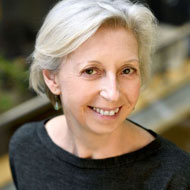‘Outstanding scientist’ made Roslin Institute director

Prof Riley will take up her new post later this year.
The Roslin Institute has appointed Professor Eleanor Riley as its new director, after Professor Hume stepped down in January.
Prof Riley is currently professor of infectious disease immunology at the London School of Hygiene and Tropical Medicine. She will take up her new post later this year.
Commenting on her appointment, Prof Sir John Savill, head of the University of Edinburgh’s College of Medicine and Veterinary Medicine, said: “Professor Riley is an outstanding, internationally respected scientist. She brings an impressive track record in leading major multi-partner projects in the UK and abroad.
“We are confident that her visionary leadership will cement the Roslin Institute as a global research leader in human and animal health.”
Prof Riley has a background in veterinary medicine, human infectious diseases and global health, and can boast more than 30 years’ of experience of research in the UK and Africa.
She graduated from the University of Bristol with degrees in Cellular Pathology and Veterinary Science. Following that she trained in Veterinary Pathology at Cornell University and completed a PhD in Immunology and Parasitology from the University of Liverpool.
After five years working with the Medical Research Council Laboratories in The Gambia, she joined the University of Edinburgh’s Division of Biological Sciences as a Wellcome Trust senior research fellow in 1990.
She became a professor of infectious disease immunology at the London School of Hygiene and Tropical Medicine in 1998, and led the school’s department of immunology and infection from 2001 to 2013.



 The veterinary mental health charity Vetlife is inviting the veterinary community to join it for a sponsored cold-water dip.
The veterinary mental health charity Vetlife is inviting the veterinary community to join it for a sponsored cold-water dip.